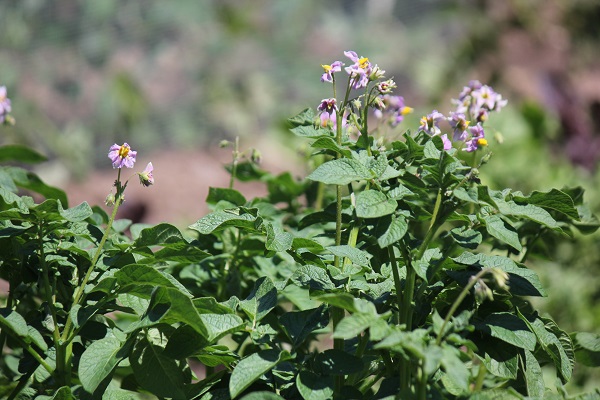The Odoriferous Onion and Why It Makes You Cry
o·dor·if·er·ous (
 d
d -r
-r f
f
 r-
r- s)
s)
adj.
So why does slicing onions make people cry? This age old question has had chefs scratching their heads (or chef hats; did you know that the tall white hat is called a toque?) for as long as onions and knives have been rubbing elbows on the cutting board.
The answer is a trifle technical and begins with the dirt. Soil contains a compound called thiopropanal-S-oxide (C3H6OS). Onions happen to be a member of the genus Allium, along with other flavorful veggies like leeks, shallots, garlic, and chives. Members of this genus absorb the thiopropanal-S-oxide found in the dirt. The sulfur absorbed from the earth helps to form an organic molecule called amino acid sulfoxides. This is what causes the eye irritant and pungent aroma of the odoriferous onion.
Enzymes make you cry. Onions contain an enzyme called alliinase. When an onion is sliced or chopped, cell walls are broken, and alliinase is released. Alliinase breaks down the thiopropanal-S-oxides and releases sulfenic acids, which are extremely irritating to human eyes - think tear gas fumes wafting from the chopping board up to your olfactory senses and into your eyes.
So there you have it. A compound with a chemical formula C3H6OS that exists naturally in the soil is absorbed into onions, then broken down, when cut, causing a chemical reaction, releasing irritating fumes when you chop onions - the chef begins to cry.

 d
d -r
-r f
f
 r-
r- s)
s)adj.
Having or giving off an odor. Source: The Free Dictionary
_______________________________________
Tears trickled down their cheeks. Had someone kicked them in the shin? Pulled their hair? Called them stupid? Stole their candy? Sat in their special place? NO! These were not the tears produced from a petty squabble. Our youthful guest chefs were simply chopping onions.
The answer is a trifle technical and begins with the dirt. Soil contains a compound called thiopropanal-S-oxide (C3H6OS). Onions happen to be a member of the genus Allium, along with other flavorful veggies like leeks, shallots, garlic, and chives. Members of this genus absorb the thiopropanal-S-oxide found in the dirt. The sulfur absorbed from the earth helps to form an organic molecule called amino acid sulfoxides. This is what causes the eye irritant and pungent aroma of the odoriferous onion.
Enzymes make you cry. Onions contain an enzyme called alliinase. When an onion is sliced or chopped, cell walls are broken, and alliinase is released. Alliinase breaks down the thiopropanal-S-oxides and releases sulfenic acids, which are extremely irritating to human eyes - think tear gas fumes wafting from the chopping board up to your olfactory senses and into your eyes.
What can you do to help prevent all of this tearing-up when you slice and dice?
- Hold the onion under cold running water while slicing or chopping. (easier said than done!)
- Wear safety glasses. (good idea for when frying too!)
- Turn on a fan to disperse the onion fumes and make them less intense.
One more interesting thought to ponder - it's thought that the more you cook with onion, the more desensitized you become to their fumes, over time. Aha! Perhaps that's why onions are not real tear-jerkers at our house. They are a part of almost every dish we prepare.
Sources for this article: TLC, Library of Congress, Wikipedia

____________________________________
Product Recommendation: For years our family has chopped vegetables with our Alaskan ULU carving set. It makes mincing garlic a breeze!




Comments
Post a Comment
Thanks for your comments!